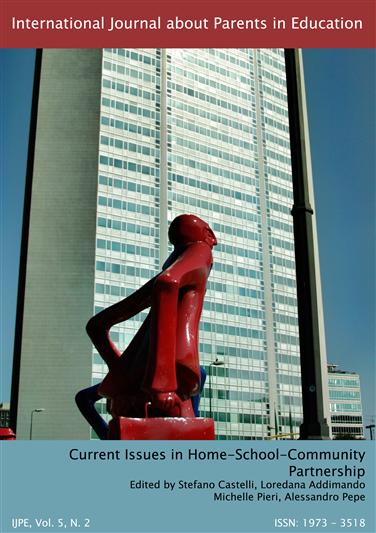What we tell them is not what they hear: the importance of appropriate and effective communication to sustain parental engagement at transition points
DOI:
https://doi.org/10.54195/ijpe.18177Abstract
This paper examines the way that parents perceive and react to the way schools communicate with them. Particular focus was placed on parents who could be identified as moderately marginalised and despite ready engagement with their children’s primary education, were likely to disengage at the transition stage. The research found that parents are often alienated as a result of poor communication – significantly, at the stage of transition from primary to secondary. Specifically, the research revealed tensions resulting from misinterpretation of well-intentioned strategies to communicate in various ways. Parents drew attention to a range of communication barriers that to closer collaboration and engagement with the school, highlighting factors such as: the formal and dictatorial language and tone of newsletter; difficulty in communicating with members of staff; absence of a named person to contact when concerns were experienced; communication that appears to be one-directional; lack of prompt responses; administrators acting as gatekeepers; inconvenient timing of school meeting and parents’ evenings; parents felt that the school viewed parents’ evenings (and other related activities) as more focused on the needs of the school as opposed to the needs of the parents or their children. Others found them to be intimidating and/or not ‘family-friendly’.Downloads
Download data is not yet available.
Downloads
Published
2023-11-11
Issue
Section
Articles
How to Cite
Davies, J. D., Ryan, J. ., & Tarr, J. . (2023). What we tell them is not what they hear: the importance of appropriate and effective communication to sustain parental engagement at transition points. International Journal about Parents in Education, 5(2). https://doi.org/10.54195/ijpe.18177





